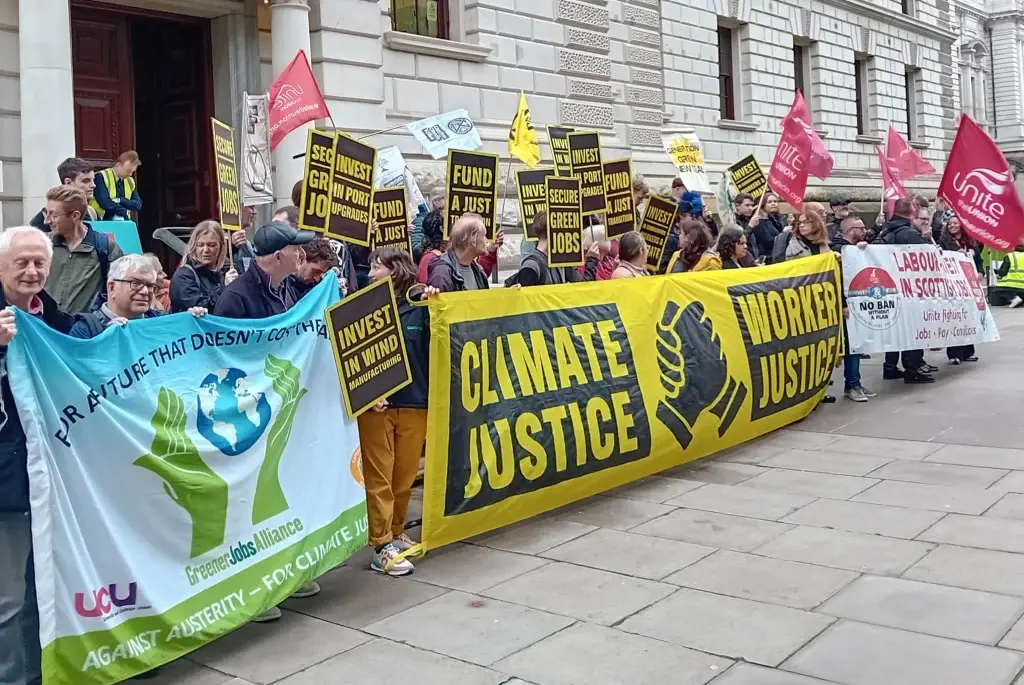The transition to renewables is not a threat to jobs in the North Sea, its the only lifeline that workers there have

Speech at the Rally for a Just Transition outside the Treasury last week
By Paul Atkin
When people say “We have to make the transition to sustainable energy BUT we need to save jobs” we need to change one word in that sentence. “We have to make the transition to sustainable energy AND we need to save jobs”.
At the 2017 COP in Katowice – held in the middle of the Silesian coalfield, where the delegates said that they could smell the sulphur on the air – sensing a threat to their jobs, the local mineworkers branch of the Solidarnosc mineworkers union voted that climate change is not happening.
While that’s an understandable defensive reaction, it actually disarms these workers two times over.
- It makes it impossible for them to campaign to save their families and communities from the consequences of climate breakdown.
- It makes it impossible for them to defend their jobs, because that defence would be based on a fantasy
That underlines the point that, whether we are a trade union seeking a future for our members – or a government seeking a sustainable future for society – we have to base our policies on reality.
Which brings us to the North Sea.
Oil and gas production in the North Sea is caught in a pincer that has nothing to do with government policy.
- The oil and gas fields are becoming exhausted – and even investment in new fields would make an insignificant difference to the speed of the decline in production, and therefore jobs.
- Oil demand has either peaked already, or will soon. That sets up a scenario in which the major oil companies are fighting like rats in a sack over the remaining profitable years. As oil demand declines, the only viable companies will be those able to extract oil from the easiest, therefore cheapest, places. That means OPEC, essentially. The Western oil majors will start to go to the wall in order of size and the extent to which their reserves are difficult/expensive to extract. The writing is on the wall for all of them, but BP and Shell will go down long before Exxon Mobil.
But these companies aren’t going down without a fight. They are pushing back hard against the shrinking of their markets, against taxes on their profits.
Part of this is the abandonment of transition plans from fossil fuels to renewables on the part of these companies because, in the short term, the former are more profitable. This dooms them and everyone working for them.
The bottom line is that the transition to renewables in the North Sea is not a threat to jobs in the North Sea, its the only lifeline that workers there have.
Video of the rally outside the Treasury
Please like & share the video to amplify our demands ahead of the budget!
Twitter: https://x.com/PlatformLondon/status/1844347237142262256
Instagram: https://www.instagram.com/p/DA8XoAQoD4c/
Facebook: https://www.facebook.com/share/r/X9zuPQXheN92Qebx/
TikTok: https://www.tiktok.com/@stopcambo/video/7424117445268393249
